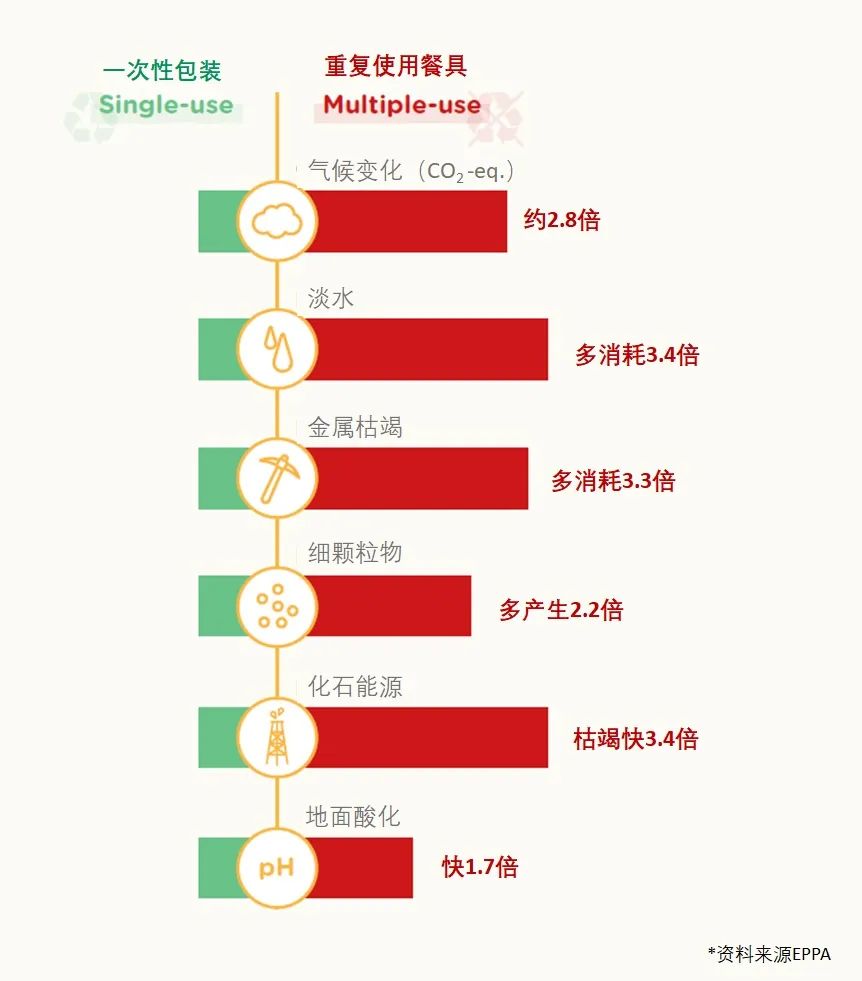
A meta-analysis of 26 previous scientific studies conducted by Ramboll, the world's leading independent engineering, design and consulting firm, came to this conclusion:
In the food delivery scene, reusable cutlery is far less sustainable than paper disposable cutlery due to additional and specific burdens. This is due to the amount of energy and fresh water used for cleaning, as well as the rate of breakage associated with recycling shipping and takeaway processes.
An earlier life cycle assessment (LCA) study commissioned by Ramboll, commissioned by the European Paper Packaging Alliance (EPPA), also showed that in a fast-food restaurant dine-in scenario, the CO2 emissions from reusable cutlery systems are the same as single-use paper packaging. 2.8 times as much as the consumption of fresh water is 3.4 times that of paper disposable packaging.
These reports all point to the same conclusion: single-use paper packaging is a more sustainable option.
Disposable paper packaging is more sustainable than reusable cutlery
This conclusion seems to be contrary to popular perception.
To understand this conclusion one has to mention Life Cycle Assessment (LCA).
Simply put, LCA is a macro-level consideration of the environmental impact of the entire process of a product "from the cradle to the grave" (that is, from raw material acquisition, production, consumption, and final disposal).
Although from a consumer perspective, intuitively reusable cutlery seems to have a lower environmental impact because it can be used multiple times. However, evaluating the impact on the environment from a product's life cycle, as the Ramboll report shows, single-use paper packaging has less of an environmental impact—because of washing and drying reused utensils (to the level needed to prevent cross-contamination). standard) requires more energy and fresh water.

"This new Ramboll study adds to the growing body of evidence that reusable cutlery is not an ideal solution for the foodservice industry, which is characterised by a high number of operators and the need for personalised products.
Given the environmental challenges society faces, policymakers need to be particularly aware of the energy and climate impacts of such packaging, and fully consider the role and benefits of renewable, sustainably sourced paper packaging in the food system. "
